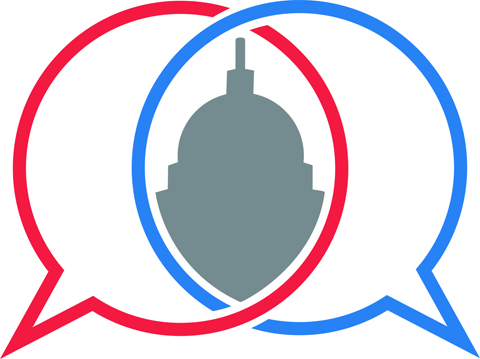Over the course of the last few weeks, our group has been
researching the many different ways in which media and politics interact. We
have decided to try and synthesize all the information we have gathered into a
cohesive final blog that describes this relationship.
 |
| link |
Mary Beth wrote in her blog post about how media informs us. Without media, the public would not be informed about what is
going on in the political realm, what the issues are, who is a contender, or
what is going on in the world.
As she says in her blog "The
media acts as the bridge between the government and the people. The only way to
gain political awareness is through media consumption. There is no direct
communication between the United States and the American people. The media is the
informant.”
Taylor focused a lot on trends and found that the trends of mass
communication can be seen all throughout the political realm. Some of the
particular topics that were focused on were demassification, convergence, interactivity,
and globalization. She was able to use great examples to back up her research
due to the current Presidential election. Our group posed the question “What
has more influence: media on politics? Or politics on the media?”
Taylor came to the conclusion that media has more of a role on
politics Due to the impact media plays on society, politicians have to
carefully edit their actions. News today is all about the latest scandal and
what can be made entertaining. When you combine politics and scandals, it can
take things to a whole new level.
Matthew tended to agree with Taylor and found that issues of
political stereotyping, socialization, narcoticizing dysfunction, agenda
setting, and the two step flow theory all point in the direction that the media
shapes politics. Media is the source of our political information. Media shapes
the issues our politicians debate. Media creates identities for our political
parties. The amount of information media releases to the public desensitizes
the voters to political issues.
 |
| link |
Jordan’s research pointed to some conclusions that were different
than those of Taylor and Matthew. Delving into researching the role of media as
a political watchdog was much like diving into a whirlpool of murky water. The relationship between the government
and media is very cyclical in nature, with both entities pushing and pulling
against one another. She agrees that media can frame political issues and set
the agenda, but there are many avenues for the government to influence media.
Jordan talks a lot about them in her most recent blog.
Finally, Carly focused on
the economics involved.
 |
| Click here for link |
She found that when the media tends to focus on the
financial aspects, the public views the politicians negatively since all the
focus is around them and their money. Even though some think the amount of
money used for the campaigns is ridiculous, that money is what benefits the
candidates in getting ahead in the race. The financial support of politicians
is a huge topic in media currently, and will be for quite some time because
money is always a point of contention and concern.
 |
| link |
In the United States, the media will always be inherently tied together
with the political system. As the medium for transmitting the information, the
media has an intrinsic power over our politics and how we view them. We are a people powered by technology and communication, with almost unlimited means of obtaining information. Because of
this we must be careful to make sure we are analyzing media for ourselves, not
just consuming it without thought.
 |
| link here |